Empowering Ethical Media Consumption: Leveraging Women Leadership
As the founder and head of Maluti Communications, a PR company specializing in reputation and crisis management, I am increasingly concerned about the ethical boundaries being crossed in media consumption, especially after events like the tragic incident during the national Maha Shivatree pilgrimage or, more recently, when images of the sexual assault on a four-year-old child hit some social media pages.
As a mother myself, my heart ached for the families who lose their loved ones in horrific tragedies or whose children are molested. Yet, amidst the grief, I am appalled to see social some media platforms sharing distressing videos of victims, in the name of … clicks?
With nearly three decades of experience in the communication industry, I’ve witnessed firsthand the erosion of newsworthiness in favour of voyeuristic sensationalism – not by everyone, but by too many. It’s unfortunately an international trend, varying in intensity depending on factors like legal structures and education. Just in January, I was at a conference with Simon Wilson, the recently retired Head of news at the BBC, where he spoke about this worldwide media sensationalism pandemic. While I consider free media to be a cornerstone of democracy, this sensationalism trend deeply troubles me, especially when so many “influencers” prioritize clicks and views over ethical considerations.
As a mumpreneur, I urge other women leaders to take action. According to a survey by the international consulting firm Hay Group published in 2016, women surpass males in 11 of 12 major emotional intelligence characteristics. Additionally, a research published in Forbes in 2022, linking character strength with business performance, suggests that CEOs who score highly for traits like compassion and integrity can earn a 9.35% return on assets over two years. Thus, our emotional intelligence, empathy and compassion are assets we must leverage.
As women leaders, we have a unique opportunity to influence the narrative surrounding media consumption, both within our organizations and beyond, including within our employees’ families. While implementing communication and social media policies is a necessary first step, we must go further by providing comprehensive media consumption education and training to our staff.
In today’s digital age, where AI-generated content and fake news proliferate, it’s more important than ever to equip our employees with the skills to navigate ethical boundaries in media consumption. This includes teaching them how to distinguish between ethical and unethical news and footage, as well as strategies for verifying sources and spotting the maximum of fake news and images.
As leaders, we can prompt the organisation of workshops or seminars where experts in media literacy share their insights and practical tips. We can encourage our employees to actively engage with reputable news sources, and participate in discussions about media ethics and integrity.
By empowering our employees with these few media literacy skills – there are many user-friendly trainings and resource people available – we not only enhance their ability to make responsible choices, but also equip them to pass on this knowledge in their own homes.
As women leaders, we have a responsibility not only towards our employees but to society at large. By leading by example and prioritizing ethical considerations in our own behavior and decision-making, we can inspire others to do the same, including when it comes to navigating the ethical boundaries in media consumption.
As women, after everything we’ve done to get to where we are now, I believe that we can rise to this new media consumption challenge, and somehow directly influence generations to come.




